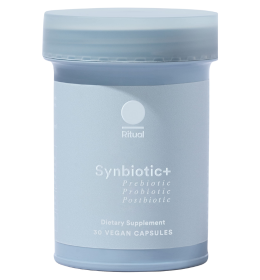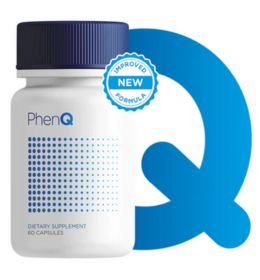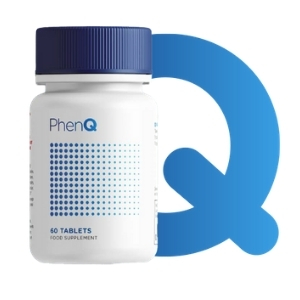 Recently, alterations in the gut[1] have gained attention as a potential factor contributor to diseases[2] like irritable bowel syndrome, also known as IBS, diabetes, and obesity.[3]
Recently, alterations in the gut[1] have gained attention as a potential factor contributor to diseases[2] like irritable bowel syndrome, also known as IBS, diabetes, and obesity.[3]
The bacteria[3] in the digestive tract are responsible for producing vitamins, essential amino acids, and other substances that can influence a person’s metabolism, nutrient absorption, and food intake.
Research[3] has demonstrated a difference between lean and obese individuals’ gut microbiomes. Specifically, lean individuals[4] have more gut bacteria and a more diverse gut flora.[5] This finding has led to the conclusion that imbalances in the intestinal flora may contribute to obesity.[6]
Balancing the gut microbiome is often the key to weight loss success. This article will explore the best foods for gut health and weight loss and the science behind how these foods can positively impact the gut microbiome.
10 Foods That Heal Your Gut & Help Lose Weight
The best foods to heal your gut include those with prebiotics and probiotics which are high in fiber. Our top ten foods include:
- Yogurt or kefir.
- Sauerkraut or kimchi.
- Kombucha.
- Whole grains.
- Garlic.
- Asparagus.
- Berries.
- Beans and lentils.
- Leafy greens.
- Ginger.
10 Best Foods For Better Gut Health & Help With Weight Loss
To improve the gut microbiome and promote weight loss, you should implement a whole-food, anti-inflammatory diet high in probiotics, prebiotics, and fiber. We will discuss the best food choices to help raise the levels of good bacteria in the gut.
FEATURED PARTNER OFFER

Ritual Synbiotic+
- 3-in-1 formula: prebiotics, probiotics, and probiotics
- Supports a balanced gut microbiome
- Supports bloating, gas, and diarrhea
- Supports the growth of beneficial gut bacteria
- Vegan and Third-party tested
FEATURED PARTNER OFFER

PhenQ
- Helps to burn fat
- Crushes food cravings
- Boosts energy and balances mood
- High-quality formula
Yogurt Or Kefir
Fermented foods[7] are rich in probiotics,[8] the healthy bacteria that can help restore the gut microbiota. Both yogurt and kefir are fermented dairy products that contain live active cultures of bacteria and yeasts. Yogurt is a more solid dairy product, while kefir is a thick, drinkable liquid.
When these dairy products undergo fermentation, their nutritional value[7] is enhanced, and healthy gut bacteria are promoted.
Research[9] has demonstrated that the short-term high consumption of yogurt increased gut flora diversity and increased the probiotic species Lactobacilli spp. Certain Lactobacillus spp have been linked to weight loss[10] by altering energy metabolism and reducing inflammation in the gut.
Kefir also may promote weight loss.[11] It alters gut microbiome diversity,[12] minimizing constipation, bloating, and other digestive problems, making it a better choice than many debloat pills.
Sauerkraut Or Kimchi
If you can’t consume dairy products like yogurt or kefir, other excellent fermented foods to add to your diet are the vegetables sauerkraut or kimchi, a fermented cabbage. These two foods[13] are also high in probiotic strains that can repopulate the gut with beneficial bacteria.
Sauerkraut[13] consumption has been linked to increased gut colonization with Lactobacillus spp., Leuconostoc spp., Weissella confusa, L. lactis, and Enterobacter spp. This adds to the overall diversity of the gut microbiome.
Kimchi[13] is also high in Lactobacillus spp., which can promote the growth of beneficial bacteria in the gut and result in weight reductions.
Kombucha

Kombucha is a popular probiotic health drink that is made from fermented tea. Adding kombucha[14] to your diet is a great way to introduce probiotics to your digestive tract. This fermented drink is also a great source of vitamins for gut health and antioxidants that can contribute to improved digestion.
Research[14] has shown kombucha contains anti-inflammatory, anti-bacterial, and antioxidant activity which can help restore healthy gut bacteria and fight inflammation that can make losing weight more challenging.
Whole Grains
Adding whole grains to your diet, such as wheat, quinoa, barley, rice, and oats, can alter the gut microbiota by serving as prebiotics. These prebiotics are beneficial fibers that help fuel the good bacteria in the large intestine and may also support mental health.[15]
Prebiotics work to support probiotics to keep the gut healthy.
Prebiotic[16] consumption may reduce body weight through several mechanisms, such as suppressing appetite, increasing bacterial abundance,[17] and boosting gene richness[17] in the gut flora.
Whole grain consumption can also increase feelings of fullness,[18] reducing cravings and snacking between meals, contributing to weight reductions.
Whole grain wheat[18] consumption, in particular, has been linked to increased production of Bifidobacterium and Lactobacillus, healthy gut bacteria that promote proper digestion.
Prebiotics[2] can also balance the gut microbiota by increasing healthy gut flora like Bifidobacteria spp. and decreasing the bad bacteria E. coli, which can cause digestive inflammation. The normalization of the gut microbiota can promote weight loss for many individuals.
Garlic
Garlic is another excellent prebiotic source to add to your diet to restore healthy bacteria in the gut and help you lose excess weight. Fresh garlic can be added to almost any meal, and you can reap all the overall health benefits of this potent prebiotic.
Research[19] has shown that garlic consumption can increase the number of L. acidophilus bacteria in the gut. This probiotic strain is known for reducing intestinal pH[20] and inhibiting the growth of disease-causing bacteria and their reproduction in the digestive tract.
L. acidophilus may also reduce[20] cholesterol levels, improve lactose intolerance, regulate immunity, and improve gastrointestinal diseases. This includes conditions such as ulcerative colitis, making it a crucial probiotic strain to reduce chronic disease.
Asparagus
Asparagus is such an underrated vegetable. It tastes great, is easy to prepare, is low-cost, and is an excellent prebiotic[21] that can restore normal digestive function. High in fiber,[22] asparagus consumption can help with improving bowel movements and digestive complaints like farting, bloating, and diarrhea. This is why it is one of the best foods that help with bloating.
Asparagus is high in polyphenols,[23] which play a major role in reducing oxidative stress in the body. Polyphenols have anti-obesity effects,[24] potentially inhibiting fat cell production, reducing inflammation, and increasing energy expenditure. Eating foods high in polyphenols can lead to improvements in weight reduction.
Asparagus is also packed with antioxidants,[21] which limit free radical damage and encourage their breakdown. Free radicals[35] contribute to countless chronic diseases, such as cardiovascular and inflammatory diseases.
Berries
High-fiber foods like berries serve as prebiotics,[25] which is not degraded in the small intestine but instead travel to the large intestine. They then serve as a food source for the good bacteria in the gut.
High-fiber foods can also help normalize bowel movements, reducing gas, bloating, and constipation.
The best berries in your diet include blueberries, strawberries, and raspberries. These berries are packed with fiber and antioxidants[17] that can reduce overall inflammation.
Each berry has unique antioxidant properties,[26] so consuming a wide variety of berries in your diet is best to reap all the benefits. In particular, research[26] has shown that eating strawberries, black goji berries, white Chinese bayberries, and red Chinese bayberries increases gut flora diversity.
Beans And Lentils
Beans[27] and lentils are high in fiber and resistant starch, making them excellent prebiotic sources for replenishing the gut microbiome. They are easy to add to soups or salads and are some of the best foods for gut health and digestion.
Fermentation of resistant starches[28] from legumes in the lower digestive system produces short-chain fatty acids or SCFAs.
Two of the major SCFAs produced by resistant starches are acetate and butyrate. Acetate[28] can significantly drop the pH of the colon, inhibiting disease-causing bacterial growth and assisting with the absorption of minerals like iron, calcium, and sodium.
Butyrate[28] possesses anti-inflammatory properties, protects against colon cancer, and is a major player in maintaining the gut lining. Research[28] has also linked SCFAs to reducing the risk of cancer, diabetes, obesity, and heart disease.
Leafy Greens

Spinach, arugula, kale,[29] and other leafy greens can all contribute to weight reduction and improve gut health. These are low-calorie, nutrient-dense vegetables packed with fiber and nutrients[30] like folate, vitamins A, C, and E, which can contribute to a healthy digestive system.
Research shows that leafy greens also contain a specific type of sugar, sulfoquinovose,[31] which is used as an energy source by beneficial gut bacteria. Each time we eat leafy greens, we provide our bodies with sulfoquinovose[32] to help restore the gut flora.
Ginger
Ginger is well known for its countless medicinal properties, particularly its positive effects on gut health. Ginger can be taken as a supplement, added as a meal spice, or consumed as a juice or tea.
If you’re unsure how to add ginger to your diet, taking ginger juice is a relatively simple way to alter the number and species of beneficial bacteria[33] in the intestinal flora positively.
Ginger’s anti-inflammatory and anti-bacterial properties can also help individuals with gastrointestinal disorders. Specifically, ginger has shown great promise in improving the diversity and function[33] of the beneficial bacteria in the gastrointestinal tract.
Ulcerative colitis patients who eat ginger may restore normal bowel function[34] by altering the gut flora and maintaining the integrity of the gut wall.
FEATURED PARTNER OFFER

PhenQ
Foods You Need To Avoid
Incorporating prebiotics, probiotics, and high-fiber gut-healthy foods into your diet can help support digestion and boost fat loss. However, cutting out foods harmful to the gut is just as important.
In general, avoid the standard American diet, which is high in processed foods, alcohol, and foods high in artificial sweeteners. All of these foods can harm the beneficial bacteria[17] in the gut.
Animal protein, such as red meat, has also been linked to reducing the amount of favorable bacteria[17] in the digestive system and may lead to inflammatory bowel diseases and cardiovascular disease.
A Mediterranean diet[17] with probiotic-rich foods is likely the best diet for gut health and weight reduction. In addition, consuming more plant-based foods may improve gut health for some individuals.
Conclusion
A healthy gut is crucial for overall health, well-being, mental health, and weight reduction. Incorporating foods rich in prebiotics, probiotics, and fiber into your diet can help you restore a healthy gut microbiome and boost weight loss efforts.
When including these foods, remember that it is also essential to eliminate the worst foods for gut health, like refined foods, artificial sweeteners, and red meat, to see the best results. Making gut health a priority can help those desiring weight loss achieve the biggest health benefits and make lasting changes to their well-being.
Frequently Asked Questions
Try incorporating gut-healthy foods high in probiotics, prebiotics, and soluble fiber to promote beneficial bacteria in the digestive tract. To do so, include foods like yogurt, asparagus, beans, and berries to help you lose weight while improving gut health.
Losing belly fat will come with healing your gut. Try incorporating whole, healthy foods rich in probiotics, prebiotics, and fiber into your diet to replenish the good bacteria in the gut that help you lose weight.
The best foods for gut health are foods high in probiotics, prebiotics, and fiber. Some of our top ten foods included asparagus, berries, yogurt, kimchi, garlic, leafy greens, and ginger.
Foods high in probiotics, prebiotics, and fiber can help restore good gut bacteria. Research has shown altering the gut microbiome may promote fat loss in those desiring to lose weight.
Whole, minimally processed probiotic foods are best for gut health. Incorporating foods like leafy greens, yogurt, sauerkraut, and garlic and eliminating red meat and processed foods may improve digestive health.

